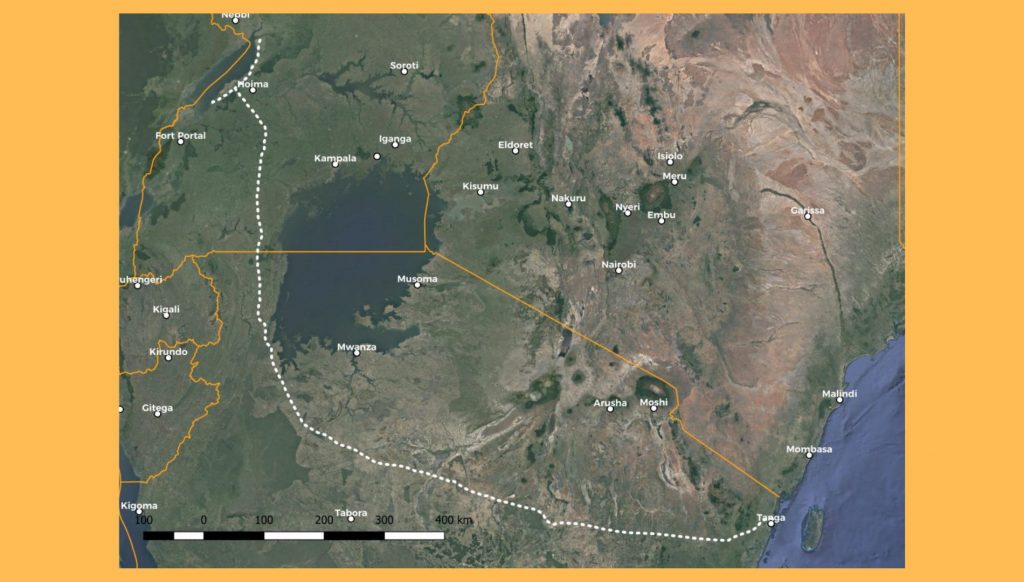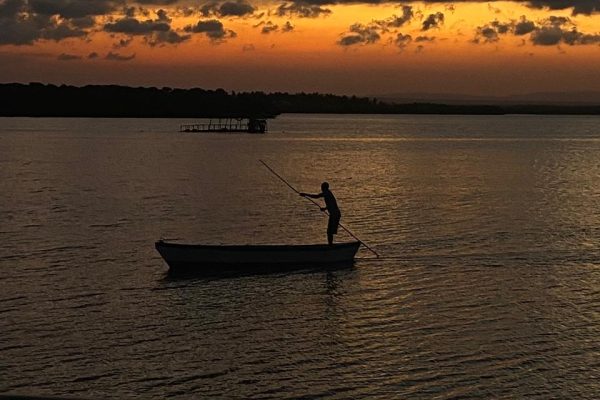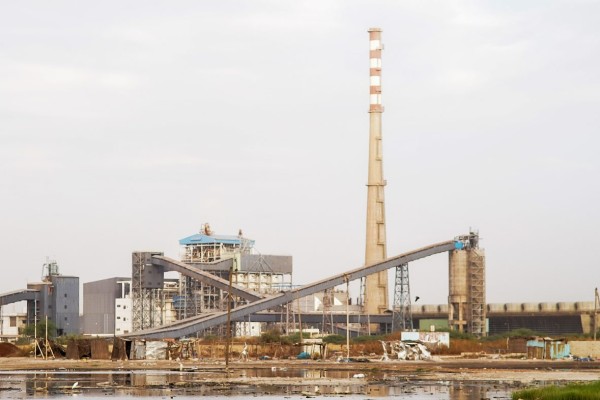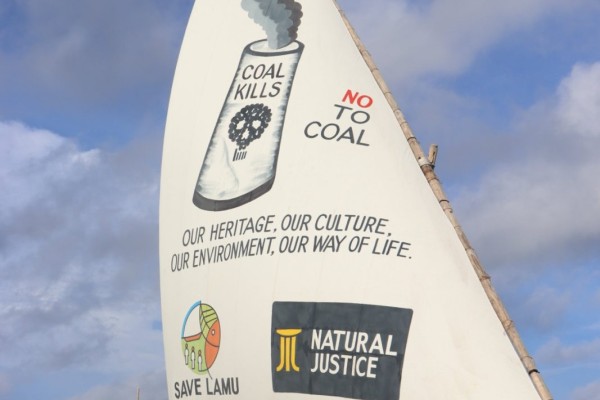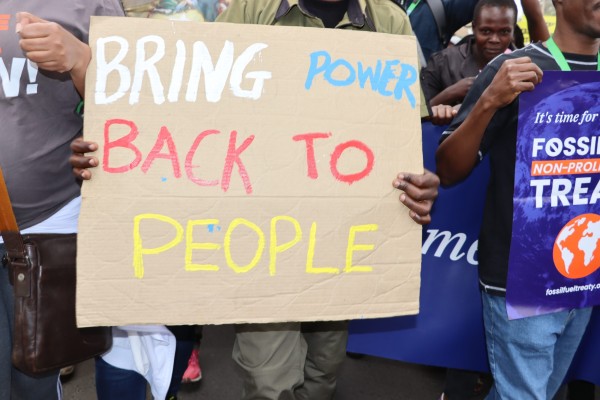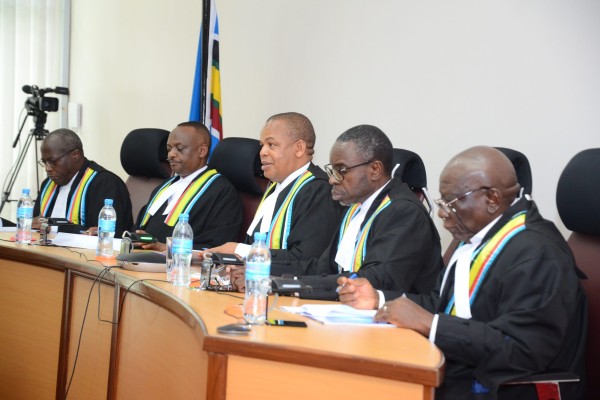Africa is facing its own Standing Rock moment. The Tanzanian and Ugandan governments have signed a deal that will result in the development of the 1 445 km long East Africa Crude Oil Pipeline. It will traverse two countries and transport 216 000 barrels of oil a day. The EACOP will be the longest pipeline in East Africa, leading to the displacement of thousands of villagers, environmental destruction and contribute significant carbon emissions. This is the time for communities across Africa to rise up against these types of short-sighted developments.
Natural Justice has joined a coalition of civil society organisations who are challenging the pipeline in the East African Court as a way to stop its development for the time being and challenge some of the environmental authorisations that have been approved.
On the 10 September 2020, the Government of Uganda and Total International signed the Host Government Agreement for the EACOP project. A day later, the President of Uganda traveled to Tanzania to initiate the intergovernmental agreement with the Tanzanian government.
The pipeline originates in the Kingfisher fields and Tilenga fields of Uganda. This part of the pipeline development has already begun, but once completed, it will pass through an estimated 10 000 farmlands, cutting through 230 rivers and streams and several forest reserves, such as the Wambabya and Taala forest reserves.
On the 6 November 2020, the Center for Food and Adequate Living Rights (CEFROHT), Africa Institute for Energy Governance (AFIEGO), Natural Justice and the Center for Strategic Litigation in Tanzania filed a case in the East African Court asking for a temporary injunction. This could later become a permanent injunction, stopping it all together.
The legal arguments
The case is against the governments of Uganda and Tanzania, and the Secretary General of the East African Community, who is mandated to ensure Compliance with the East African Community Treaty.
The organisations bringing the case argue that the agreements were signed without due regard to Uganda’s national laws and the East African Treaty. Uganda signed the agreements with Total E&P Limited without an approved Environmental and Social Impact Assessment from the National Environmental Management Authority, as required by law.
Uganda and Tanzania went on to sign the agreements with Total E&P Limited without a transboundary Environmental and Social Impact Assessment being conducted and approved. This is required under two protocols: the Protocol on the Environment and Natural Resources Management and the Protocol for the Sustainable Development of the Lake Victoria Basin.
Furthermore, the organisations allege that the Environmental Impact Assessments conducted by Total E&P Limited did not include a human rights impact assessment of the project, as well as a climate change impact assessment.
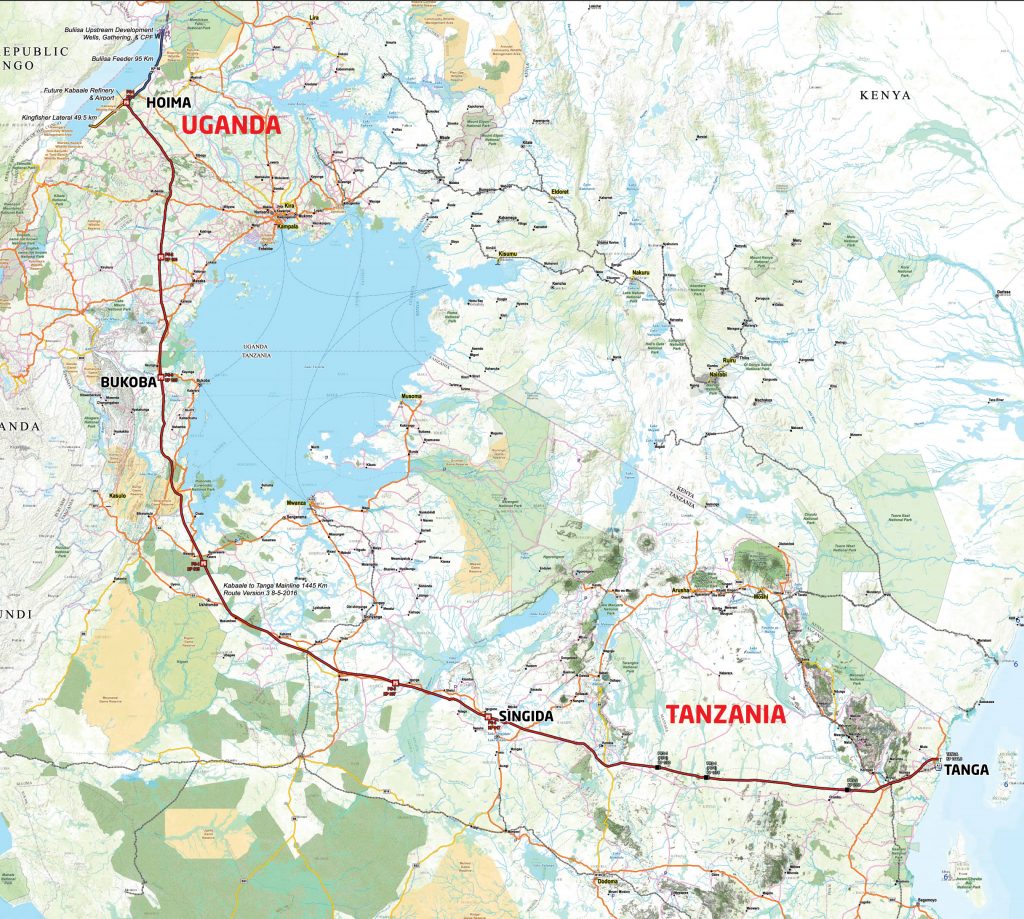
Expected environmental and social impacts
There will be many expected impacts from the pipeline. Some will be more immediate, like the displacement of people and the impact this will have on people’s access to land, their livelihoods and food security. Other impacts will be on local wildlife, some which are threatened and endangered species living in the pipeline’s area of traversal.
The traversal of the pipeline through an estimated 230 water sources is equally concerning, especially if there is a leak, which is not an uncommon phenomenon. The EAOCP will be one of the longest pipelines in the world and will pass through a few seismically unstable areas and close to water bodies. These water bodies are important not only to those living in the vicinity and the animals that rely on them, but millions of others, should major rivers and lakes (such as Lake Victoria) be affected. The consequences are too dire to consider.
Another impact, which is more difficult to quantify, are the carbon emissions associated with the oil extraction and pipeline. While the rest of the world is moving away from carbon-intensive industries, African governments are stubbornly holding onto these types of developments due to the perceived economic benefits. Yet, instead of economic benefits, there are the risks that the pipeline will cause major social disruption and destroy social cohesion within communities. This will lead to increased poverty in the areas traversed by the EACOP in Uganda and Tanzania.
Beyond the regional risks and impacts, the pipeline will set back global climate actions that many other countries and communities have embarked on. The countries affected by the pipeline have international commitments, as well as commitments to their people. Instead of investing in polluting industries, governments should be supporting the livelihoods of its people and protecting its biodiversity for future generations.
Next steps
Natural Justice has joined the coalition of civil society organisations bringing the case for various reasons. We aim to provide our legal expertise and advocacy support. We have also gathered significant experience while working with communities to challenge the impacts of the LAPSSET projects in Kenya, which we hope to be able to share.
We will be working closely with the other organisations on this case to bring further information on this project to the communities of East Africa, to support them in their actions to protect their land and livelihoods, and ensure due compliance with the laws. Over the next few months, we hope to strengthen our connections to the communities of Uganda and Tanzania and stand in solidarity with those challenging the pipeline’s construction.

